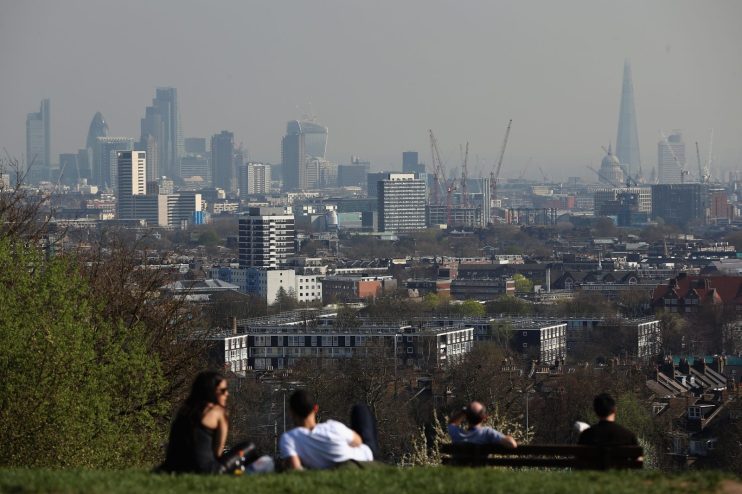In our lifetimes, cities will smell like the countryside

Imagine taking a deep breath of urban air, and enjoying its crisp freshness as it fills your lungs.
It’s not something city dwellers have experienced for centuries, if ever. Even before the industrial revolution, smoke and ordure hung heavy in the air.
But we are now within grasp of the end of fossil fuels — and with it, unimaginable benefits.
It’s not just the smell that will change. Cities will be quieter too. Internal combustion engines create an ever-present throb, worsened as a moped speeds away from a delivery, a boy racer decides to rev their way down the street or a van accelerates hard, belching smoke and noise.
And the end of the fossil fuel era won’t just be good news for our senses. It’s incredibly important for our health. Urban pollution — from sources like engines and gas boilers — kills over 30,000 people a year.
To put that in perspective, that’s the same as the Covid crisis to date, every two years.
So how does this pollutant-free future come about? The secret is the electrification of everything — heating and transport in particular.
Much has been written about the green transport revolution, with the government banning sales of new petrol and diesel vehicles by 2030 and electric cars becoming ever more popular. Far less attention has been paid to heating. But it should.
Gas boilers are responsible for over 20 per cent of all the nitrogen oxides in urban areas. These gases are deadly, contributing to asthma, lung cancer, and other serious health problems.
While Covid has had a positive impact on driving down commuter traffic, the crisis and our response to it will inadvertently see this worsen, as millions of homeworkers fire up their heating systems this winter.
The government’s energy white paper was published last week, and confronts the issue of decarbonising heating. It’s been seen as a huge dilemma: how do we rip out 25m gas boilers across the nation?
Our own modelling shows the way to go: electric heat pumps.
These very smart bits of kit are like inside-out fridges. Fridges take heat from the inside and move it outside. Heat pumps take heat from the outside world and bring it into our homes.
You know how the back of your fridge gets warm? The heat pump basically uses a bigger version of that as the heating element.
Today, heat pumps are expensive and don’t always work as well as a gas boiler. But like so many technologies, they’re set for massive improvement.
First, there’s an easy way to bring running costs down. Heat pumps are like magic: they turn 1KWh of energy into 2–4 KWh of heat, whereas the wheezy old gas boiler delivers perhaps 0.9KWh of heat.
However, today we pay more for electricity than for gas — partly because electricity carries all the climate taxes, whereas gas is virtually tax-free. This is bonkers. Surely it would make sense to tax the bad fuel, not electricity which is increasingly green.
As soon as we fix the taxes to unleash the bargain of green electricity, heat pumps should become far cheaper to run.
The second issue is that they’re still more expensive to buy and install. But Octopus’s analysis shows that these costs too can be driven down. A heat pump is really only a fan, a motor and a few pipes with heat-transfer fluid. That is so much simpler than the complexities required for combusting gas. As soon as we’re manufacturing at volume, heat pumps will plummet in price.
Heat pumps really benefit from insulation and smart meters, so it’s an ideal opportunity to offer people a decarbonisation bundle: cheap green heating, a more energy efficient home, and smart tech to cut costs further.
So is this a pipe dream, or a plausible reality? The trends are all in the right direction.
The cost of batteries has fallen 90 per cent in the last decade, solar generation has fallen 86 per cent, and wind 60 per cent. As these technologies become more widely used, the costs of a green future keep falling. And heat pumps — the magic devices that generate three times more heat than a gas boiler — are set to do the same.
The more we take it seriously, the more we see that tackling climate change will be a cost saving. Breathe easy — you soon will… even in the heart of the city.
Main image credit: Getty